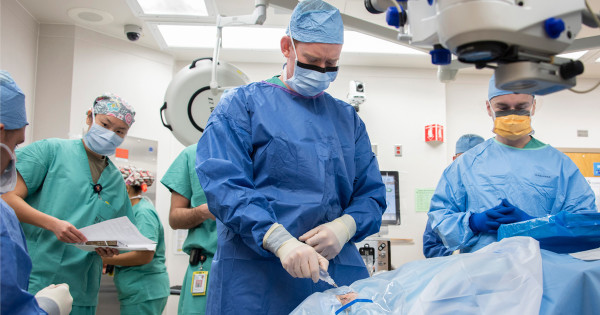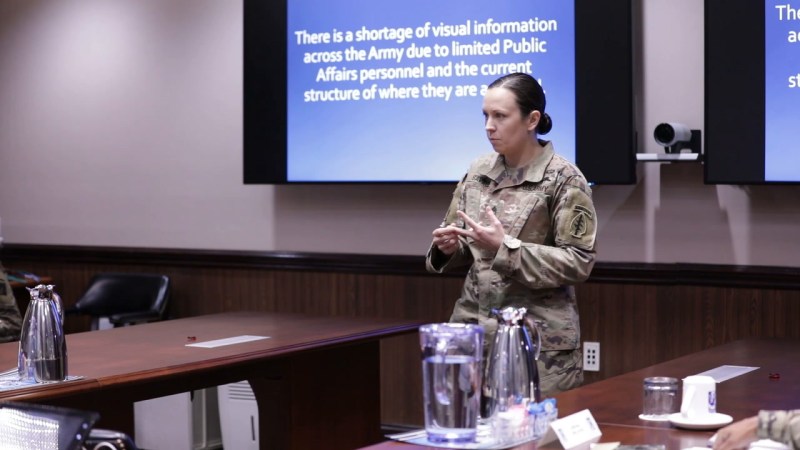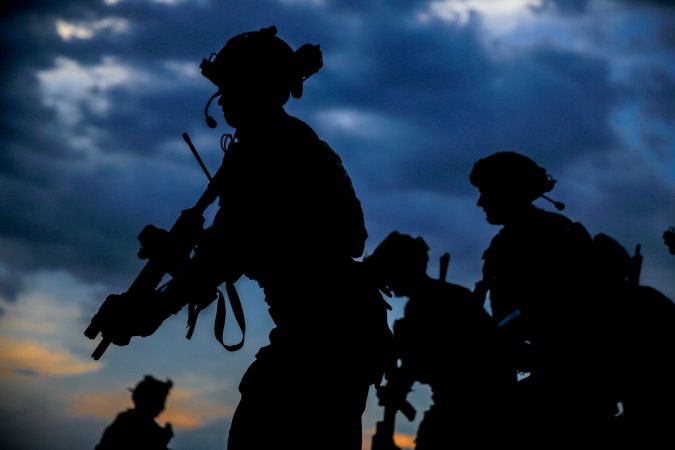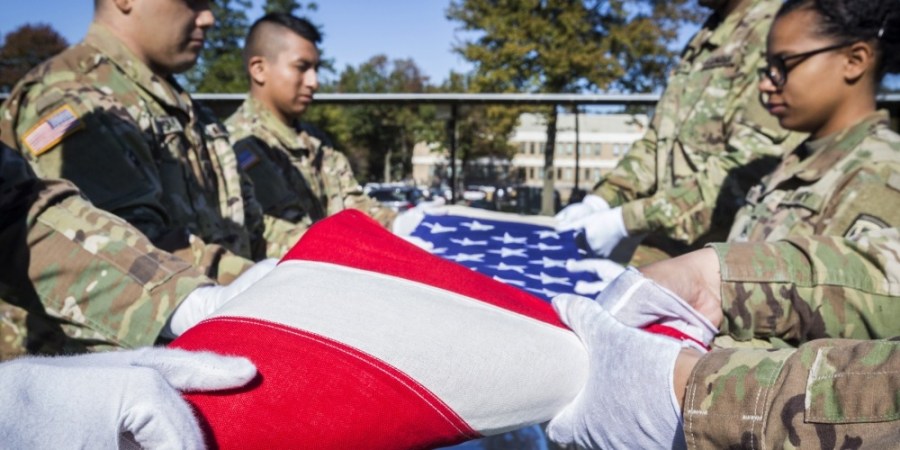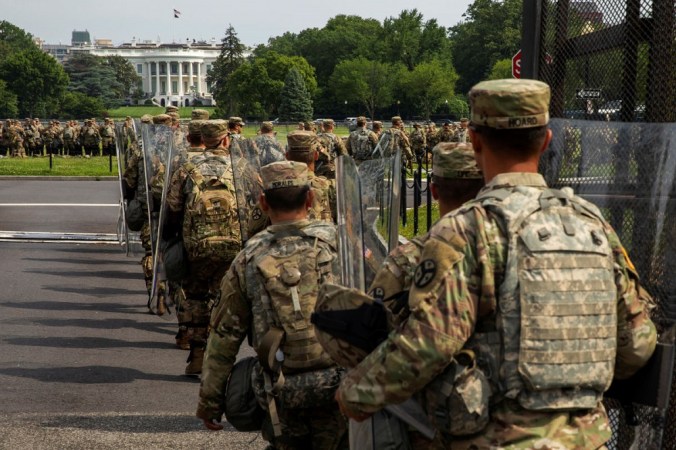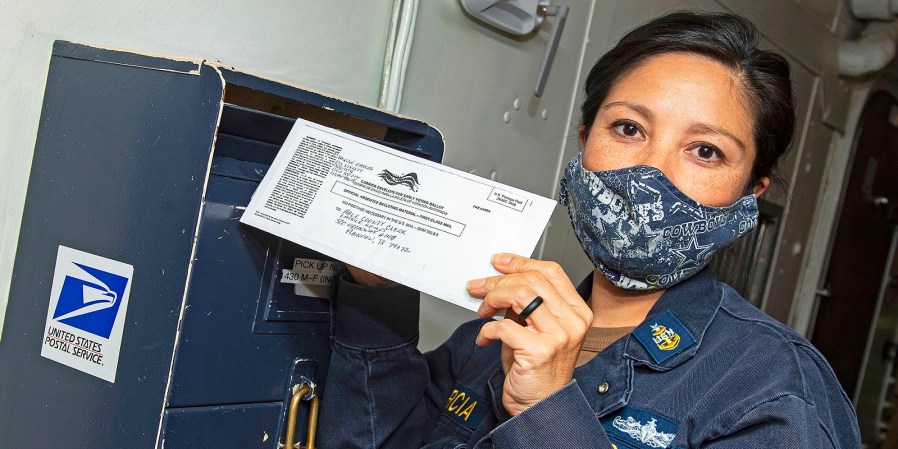As the Pentagon works to address the implications of the Supreme Court decision to overturn Roe v. Wade, experts warn that servicewomen, military spouses, and the military community as a whole could be hit harder than military officials realize.
The Supreme Court’s decision on Friday to overturn the 1973 case, which established a constitutional right to abortion, has left the issue up to the whim of the states in which Americans reside. While some states have laws in place that will continue allowing abortions, others immediately instituted so-called “trigger laws” which effectively banned abortions, including in cases of rape and incest in some states.
And as service members and their families do not get to decide which state they are stationed in, there has been no shortage of questions about how the military will be impacted.
The Supreme Court’s decision is “going to impact everybody in [the Department of Defense],” Dr. Kyleanne Hunter, a senior political scientist at the RAND Corporation and Marine Corps combat veteran, told Task & Purpose. Hunter and other experts said the decision has the potential to damage military recruitment, at a time when getting new troops in uniform is increasingly difficult, and result in current service members deciding to leave the military. They pointed out potential challenges to military readiness as well as troops’ finances, medical privacy, and family planning.

Subscribe to Task & Purpose Today. Get the latest in military news, entertainment, and gear in your inbox daily.
While the Pentagon addressed the ruling in a memo on Tuesday which essentially said the care they provide won’t change, Rachel VanLandingham, a retired Air Force lieutenant colonel and professor at Southwestern Law School, said the impact could be more than the Pentagon realizes.
“It seems to be sending a message that … this is going to blow over. People will get used to this, and it’s going to blow over,” VanLandingham said. “I really don’t think that at the Pentagon level, the top levels of civilian leadership of the military, I don’t think they understand just how important this issue really is and how important their reaction is.”
The memo from the Pentagon official overseeing personnel and readiness said the Supreme Court’s ruling “will have significant implications for our service members, dependents, other beneficiaries of DoD health care services, and civilian employees, as well as the readiness of the force.” But the military will continue providing abortions in cases of rape and incest, and when the mother’s life is endangered, the memo said.
“The Supreme Court’s decision does not prohibit the Department from continuing to perform covered abortions, consistent with federal law,” says the memo signed by Gilbert Cisneros, Jr., the undersecretary of defense for personnel and readiness. “There will be no interruption to this care.”
The military’s ability to provide abortions was limited by the Hyde Amendment in 1976, which determined that federal funding could only be used for abortions in those three aforementioned instances. That access was already seen as fairly limited; women who didn’t fall into those categories had to find care off-post at a civilian clinic, and at their own expense. But it’s now offering slightly broader care than laws in Texas, Oklahoma, Louisiana, Kentucky, Arkansas, Florida, Missouri, and Alabama, where abortion will still be outlawed in cases of rape and incest.

Still, a number of concerns remain about how the military will specifically be impacted by the Supreme Court’s decision. VanLandingham expressed frustration with Tuesday’s memo in that it didn’t set a military-wide standard for service members requesting leave for abortion care. The Army and Air Force currently have policies that say troops only need to tell commanders they are taking leave for a medical procedure, and that commanders are not allowed to deny leave for an abortion. But it’s not standardized across the force, which VanLandingham said was “disappointing.”
In an environment where there is already stigma around women having children, the further restricted access to abortion will add “another layer of cultural problems,” Hunter said. She recalled focus group research she’d done in which commanders alluded to women having “special treatment” because of their health care needs.
“Actual quote from a commander: ‘Women are a distraction because they have to go get mammograms and pap smears.’ Like okay, men have to get prostate exams?“ Hunter said. She added that she was worried that the additional hurdles women in the military will now need to clear and how some male service members could perceive them could “create ripples that could set back women’s integration … quite a bit.”
It could endanger the health of women in uniform if they “initiate self-abortion or go to an unlicensed medical facility,” she said, and exacerbate existing financial challenges for young service members in particular. Especially considering that roughly 30% of Americans would have to drive over 200 miles to their nearest abortion provider.

“If you think about Fort Hood, Texas — one of the biggest bases — the closest abortion provider is over 500 miles away,” Hunter said.
The Supreme Court’s decision also poses serious questions about privacy for victims of sexual assault, Hunter said. The Pentagon has “put a lot of care into ensuring victims’ privacy,” she said, and now women will “have to go tell their story to people they may not want to.”
It’s “impossible” to look at the Supreme Court’s decision without also considering the “serious problem of sexual violence in the military,” said Nathalie Grogan, a research associate at the Center for New American Security’s Military, Veterans, and Society Program. Previously, women in the military may have been able to find abortion care in a civilian clinic if they became pregnant from an assault. Now, depending on which state they’re in, their only option will be getting that care through the military system. And receiving an abortion through the military is dependent on a service member’s physician noting their “good faith belief, based on all available information, that the pregnancy was the result of an act of rape or incest,” according to Tricare.
The decision leaves some women feeling uncertain about how miscarriages or ectopic pregnancies could be handled by military doctors, as well. If a woman visits a military doctor and is pregnant, and then no longer is by the time of her next visit, “are they going to question her if she had an abortion or if she had a miscarriage?” one Army veteran previously told Task & Purpose. Not to mention that the treatment for miscarriages, which occur in up to 20% of pregnancies by some estimates, and abortions are often “very similar.”
This could also have serious implications for recruitment and readiness. Grogan noted that Generation Z, those born between 1997 and 2012, which is the primary recruiting target for the military, is “much more interested in joining an organization that aligns with their values.” And while the Supreme Court’s decision was of course made outside of the military, the services will be “fighting perceptions” about what “people assume about the military.”
Hunter echoed those concerns, saying that anything which makes military service “unattractive” is going to make recruitment difficult. And while recruitment is always a concern, especially now as the military is struggling to meet its numbers Pentagon-wide, it could become even more important if service members choose to leave the military because of uncertainty around their access to care.

One of the most common reasons people leave the military — for men and women — is family planning. According to national data, roughly 60% of women who receive abortions are already mothers, and Hunter said there is “already an OBGYN and pediatrician shortage in the DoD writ large.”
“If the wife and kids’ healthcare options are reduced, that’s a retention issue for the whole family,” she said. “And there’s still a lot unsettled. We don’t know what this is going to mean for some IVF treatments as well as miscarriage care, which impact male and female service members quite a bit.”
Both Hunter and Grogan emphasized that while women are primarily the ones impacted by the Supreme Court’s decision, men are impacted as well. Men in the military “have benefited from abortion and some of them may never even know it,” Hunter said. And they’ll be impacted not just in the instance of family planning with a spouse or partner, but financially both in the cases of paying for a spouse to travel to an abortion provider or paying child support, and time demands that come with being a parent. Not to mention the stress in the instance of a service member being deployed while their spouse is attempting to navigate the red tape of abortion care back in the states on their own.

Ultimately, all of the potential second- and third-order effects come back to readiness.
“Any additional stress placed on the service member or their families will undoubtedly impact readiness,” Grogan said.
Health care, Hunter said, is “fundamental” to readiness, and everything from financial insecurity, which is relevant to security clearances with some military jobs, to a lack of dependable child care contributes to readiness as well.
“This will become a readiness and retention issue,” Hunter said. “And this has the potential to become a national security issue because of that.”
The latest on Task & Purpose
- ‘Boomers, Moose, Enlisted Jesus’ and more Air Force lingo for the rest of us
- This Army officer’s epic rant about company command is a work of art
- Ukraine has the HIMARS and is putting them to use
- How a selfie with James Mattis shows he’s a Marine for the people
- The real-life Maverick who took on 7 Soviet jets in a classified Korean War dogfight
Want to write for Task & Purpose? Click here. Or check out the latest stories on our homepage.



